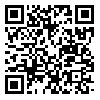BibTeX | RIS | EndNote | Medlars | ProCite | Reference Manager | RefWorks
Send citation to:
URL: http://ijme.tums.ac.ir/article-1-5715-en.html
Moral dilemmas are among the most important challenges in medical ethics. Dilemmas can occur frequently during a physician’s career and if physicians lack the ability and skills to solve them, they may be pushed to unethical behavior. Bioethics experts have always been concerned with solving ethical dilemmas in the medical profession and facilitating physicians’ decision-making process. Therefore, they often try to find useful and practical solutions by combining the views of different schools of ethics. Designing decision-making models is part of their effort to apply ethics in medicine. It is impossible to solve dilemmas without acquiring the necessary skills, and the ability to apply a decision-making model can be part of the training process.
These models aim to facilitate ethical decision-making in the field of health care by providing various frameworks. This article aims to introduce and evaluate the popular models of ethical decision-making in medicine in the hope of helping physicians choose appropriate solutions when faced with moral challenges. By presenting the advantages of applying the model approach and offering a brief introduction to popular models, the article recommends applying the approach in analyzing and resolving ethical dilemmas. Although the models each have their advantages and disadvantages, becoming proficient in their application will facilitate ethical decision-making for physicians.
Received: 2016/03/4 | Accepted: 2016/05/4 | Published: 2016/05/14
| Rights and permissions | |
 |
This work is licensed under a Creative Commons Attribution-NonCommercial 4.0 International License. |





